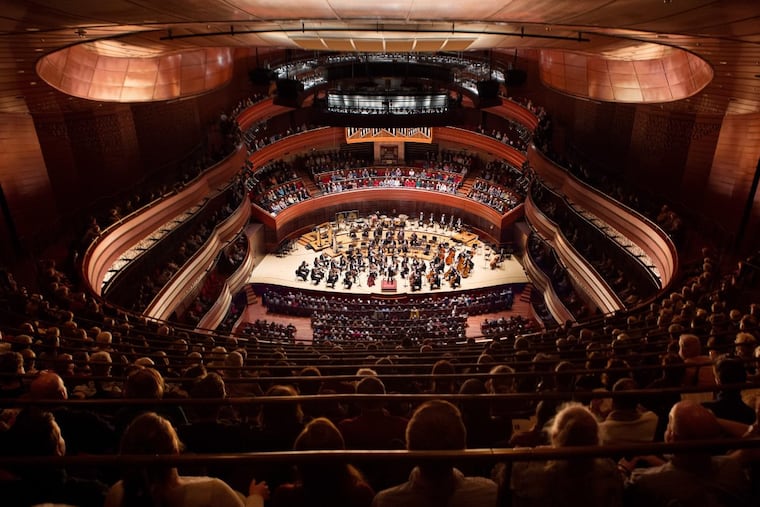Philadelphia Orchestra Brit fest opens on a wild note (cue the hyenas) with MacMillan's 'Scotch Bestiary'
The first of three programs in the British Isles Festival was an invigorating surprise.

Even amid the shifting truths of our uncertain world, the Philadelphia Orchestra's Thursday audience surely had never heard an ode to the Cro-Magnon hyena. That otherworldly yelping came early on in James MacMillan's A Scotch Bestiary, which opened the British Isles Festival with a state-of-the-art blast from the Kimmel Center's Fred J.Cooper Memorial Organ and continued for a half hour in a manner that might leave longtime MacMillan watchers pleasantly appalled.
Not ordinarily a playful composer, the seriously religious MacMillan broke away from his more typical subject matter with this 2004 organ/orchestra hybrid that includes musical portraits of extinct and exotic animals, punctuated with his own upside-down, warped-to-the-hilt version of Mussorgsky's "Promenade" theme in Pictures at an Exhibition.
MacMillan often strives to integrate unlikely musical elements. His ideas here duke it out for attention with collage effects reminiscent of Charles Ives and Luciano Berio, including fragmented bits of folk fiddle, circus calliope, Wagnerian climaxes, and an endless variety of outbursts from the organ. A huge battery of percussion lined the back of the Verizon Hall stage, and it was put to full use.
On the surface, MacMillan diluted his voice as a composer with so many outside references. But the fusion of elements requires great musical engineering, and on that front, MacMillan did so with greater effect than Ives and Berio. Emphasis on effect: Legend has it that when Rossini read through the score of Berlioz's then-futuristic Symphonie Fantastique, he declared, "Thank god it's not music." One could say the same about this piece, except here it's a compliment to MacMillan's assemblage of sounds.
If this was musical stand-up comedy, then Jacobs beautifully articulated and shaped the jokes but didn't punch them so hard that they lost their inner humanity. Or animal impulsiveness. Each animal portrait is a cryptic depiction of some notable Scot. I tried listening for Braveheart — the only noted Scot I could think of besides MacMillan — but quickly became lost in the music's outrageous richness. A special nod goes to principal trombonist Nitzan Haroz for his high-personality use of a wah-wah mute. Might seagulls land on the Kimmel roof in future performances?
Yet this was not the best item in the concert. Unlike past festivals in this slot, this program used its concept in ways that reinvigorated the familiar. Even the Jacobs encore, Bach's Fugue in G minor, often felt like it was on the verge of breaking out of its standard fugue format. The rugged Four Sea Interludes from Benjamin Britten's 1945 opera Peter Grimes was an obvious choice for the concert (even if the "Moonlight" movement dragged a bit), but pairing it with MacMillan showed how dramatically British music has since evolved. In contrast, Handel's Water Music Suite No. 1, written two centuries before Britten, revealed nascent modernity, coming off like a concerto for orchestra.
The program will be repeated at 8 p.m. Friday and Saturday at the Kimmel Center. Information: 215-893-1999 or www.philorch.org.